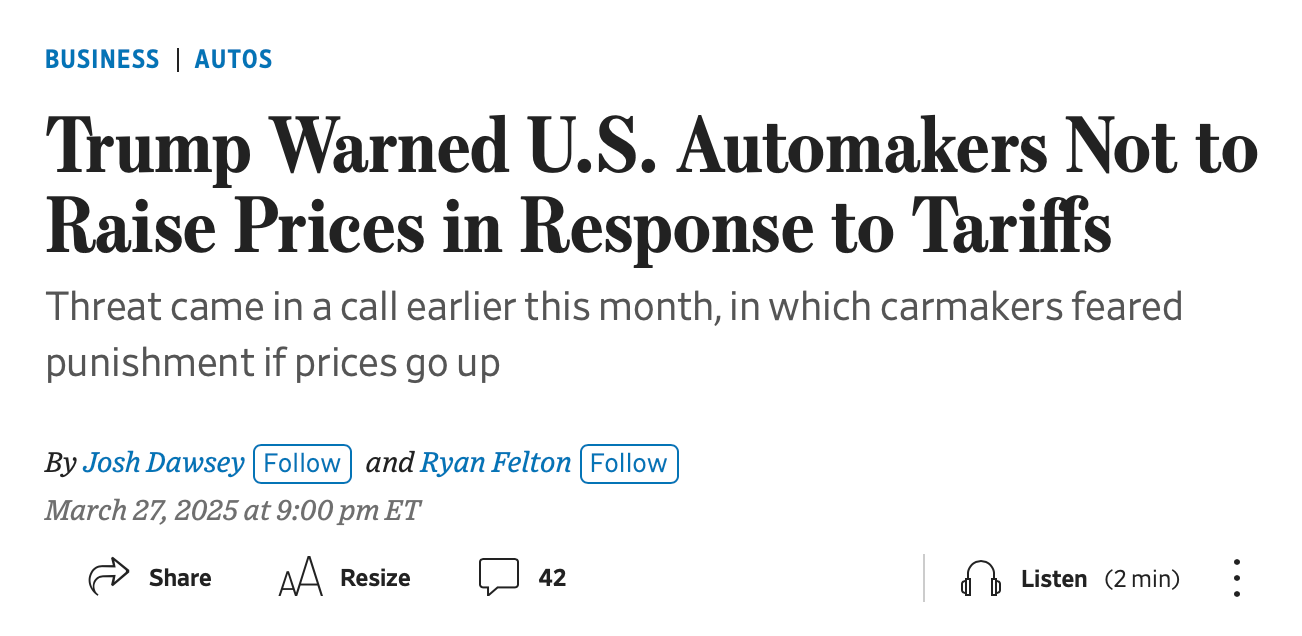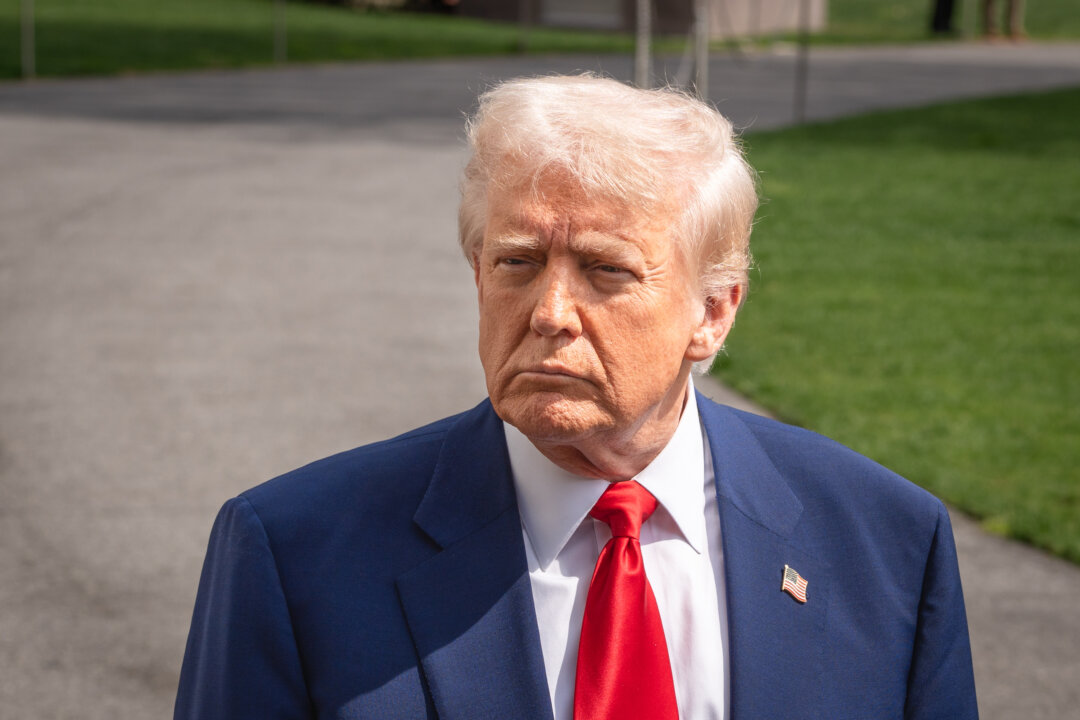On Wednesday, or “Liberation Day” as he called it, President Donald Trump announced a “declaration of economic independence.” By which he meant, of course, that the time has come to impose tariffs on America’s trading partners the likes of which had not been seen since the Smoot-Hartley Act of 1930. Surrounded by steel and auto workers, Trump held up a chart listing America’s trading partners and what he claimed were the percentage of the tariffs and non-tariff barriers they placed on U.S. goods. In the coming days, he said, the U.S. would slap tariffs on every country that was half as high as the ones America faced—except for imported autos, which will face a 25 percent tariff no matter what country they come from. This, he said, would lead to billions of dollars in investment in the U.S. and bring lower prices and greater prosperity.
Matthew Yglesias begs to differ. In this article, which we’re reprinting from his Substack Slow Boring, Yglesias explains why there is only thing we can know for sure about Trump’s tariffs: They will lead to higher prices. To subscribe to Matthew’s blog, which we promise is neither slow nor boring, click here.
—The Editors
It was clear for a while that our family would soon need to buy a new car, and we’d decided, for various logistical reasons, that the ideal time to do so was early April of 2025 and that the right car for us was one that happens to be made in Europe. For most of 2024, that was our plan.
Then in January of this year, Kate got nervous that Donald Trump was going to impose tariffs that would lead to higher car prices, and she wanted to accelerate our plans. My personal view was that this was unlikely; I thought Trump was mostly bluffing and would be eager to settle trade disputes for small concessions. But in my experience, it’s good to listen to your editor, and there was no real harm to accelerating our plans, beyond a minor parking inconvenience.
And that turned out to be the right move, because Trump has followed through on his threat to impose big taxes on imported cars and car parts. To address voter anger over higher prices, he “warned automakers not to raise prices,” which seems to me like something that will probably not work.
And it’s not just Trump singing this tune.
The United Auto Workers (UAW) has decided that it is enthusiastic about tariffs. But in the UAW’s statement endorsing Trump’s move, it said that “auto companies that have enjoyed years of record profits should absorb the cost of these tariffs rather than passing them on to consumers, and the UAW would support legislative or regulatory action requiring them to do so.”
So here I want to emphasize something: There are lots of different ways that tariffs could play out. Some of those ways could lead to large increases in consumer prices, and some have smaller or near-zero price effects. But to the extent that tariffs successfully protect high-wage American jobs or drive new investment in creating such jobs, the mechanism through which they succeed is higher prices. If the prices don’t go up, then the things that Trump is touting as the benefits of tariffs also don’t happen.
Maintaining The Free Press is Expensive!
To support independent journalism, and unlock all of our investigative stories and provocative commentary about the world as it actually is, subscribe below.
Subscriber Benefits:
Full access to all articles, investigations and columns
Access to the comments section on every piece we publish
Weekly columns from Nellie Bowles, Douglas Murray, and Bari Weiss
First chance to purchase tickets for live Free Press events

 By The Free Press | Created at 2025-04-02 22:58:36 | Updated at 2025-04-04 00:53:14
1 day ago
By The Free Press | Created at 2025-04-02 22:58:36 | Updated at 2025-04-04 00:53:14
1 day ago










